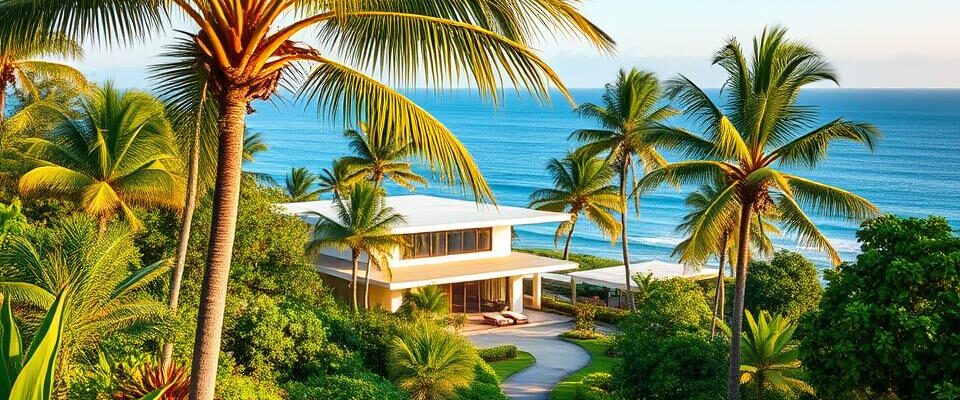Home Buying Checklist in Costa Rica | Simplify Your Purchase
Buying a property in Costa Rica can be a thrilling experience, but it requires caution and thoroughness. At Gap Real Estate, we have over 20 years of coast-to-coast experience in helping clients navigate the unique aspects of the Costa Rican real estate market.
With our expertise, you can avoid common pitfalls that many foreign buyers encounter. A comprehensive property inspection is crucial to uncover potential issues before they become costly problems. Our goal is to provide you with practical guidance to simplify your purchase process and protect your investment.
Whether you’re looking for a vacation property, retirement property, or investment opportunity, we are dedicated to delivering seamless transactions through expert guidance and clear communication.
Understanding the Costa Rican Property Market
Understanding the intricacies of Costa Rica’s property market is crucial for making informed investment decisions. The Costa Rican real estate landscape is diverse, featuring a range of property types from beachfront homes to mountain retreats. Each of these property types comes with its own set of considerations related to climate, maintenance, and legal requirements.
Unique Aspects of Real Estate in Costa Rica
The Costa Rican property market differs significantly from North American and European markets, with unique legal frameworks, construction standards, and environmental considerations that buyers must understand. Foreign buyers in Costa Rica face distinctive challenges, including language barriers, unfamiliar legal processes, and different construction standards. The tropical climate of Costa Rica creates specific construction requirements and potential issues that buyers should be aware of, including considerations for humidity, rainfall, and natural disasters like earthquakes.
Why a Comprehensive Checklist Matters
A thorough understanding of the local market conditions, regional variations, and property values will help you make informed decisions and negotiate effectively. We will explain why relying solely on visual inspections isn’t sufficient in Costa Rica, where structural issues may be hidden beneath beautiful finishes. A comprehensive checklist helps systematize your property evaluation process, ensuring you don’t overlook critical aspects that could lead to costly problems later. For instance, determining the structural quality of construction after the fact can be both expensive and difficult, highlighting the need for a meticulous evaluation process.
Essential Construction Quality Checks
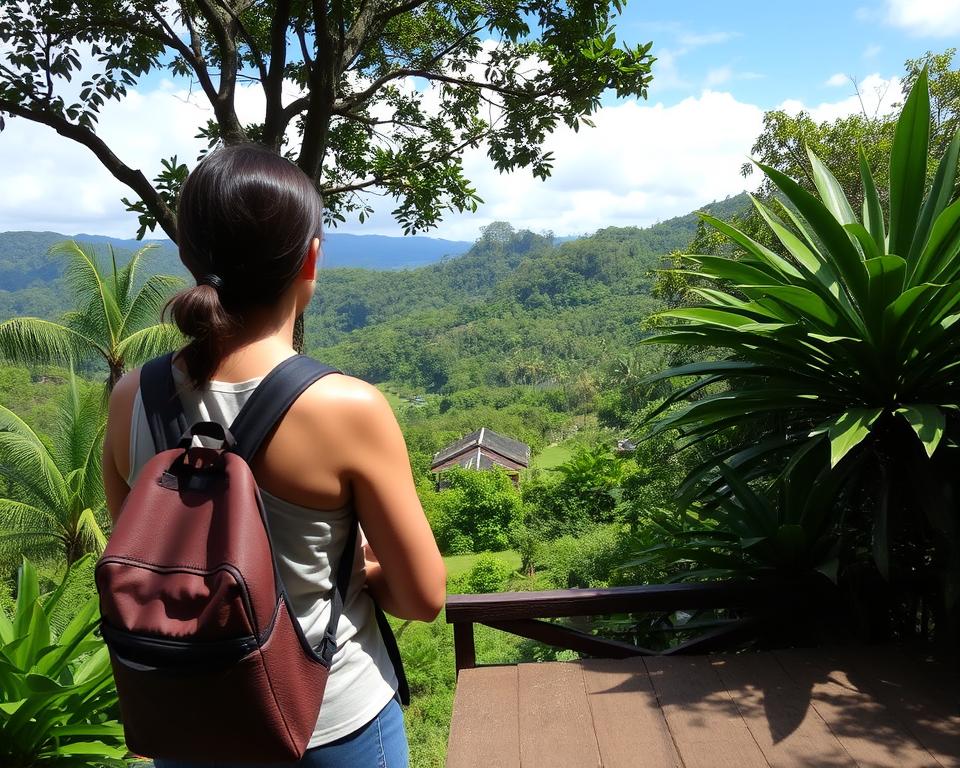
Costa Rica’s unique environment demands a thorough inspection of a property’s construction quality. When buying a home in this seismically active region, it’s crucial to assess the construction to ensure it can withstand local environmental challenges.
Structural Integrity Assessment
A structural integrity assessment is crucial in Costa Rica due to the country’s seismic activity and tropical climate. We examine the foundation for cracks or signs of settling and inspect exterior walls for cracks, bulges, or other structural issues. This assessment requires careful examination of foundations, load-bearing walls, and roof structures to ensure they can withstand earthquakes and harsh weather conditions.
Materials and Workmanship Evaluation
Evaluating the construction materials used in Costa Rican buildings helps identify quality issues with concrete, steel reinforcement, and other critical components. We look for signs of poor workmanship, such as uneven surfaces, improper joining of materials, and inadequate waterproofing, which could lead to future problems.
Climate-Appropriate Construction Features
Climate-appropriate construction features are essential in Costa Rica. Proper drainage systems, adequate roof overhangs, and appropriate ventilation are necessary to manage humidity and rainfall. We assess whether the property incorporates these features to ensure it is built to withstand the local climate.
Understanding local construction practices and standards helps assess whether the property was built to withstand Costa Rica’s unique environmental challenges. By evaluating the construction quality, we can identify potential issues and prioritize concerns to negotiate effectively with sellers.
Electrical Systems and Energy Efficiency
Costa Rica’s unique electrical standards and high energy costs make it essential to assess a property’s electrical system thoroughly. When buying a home in Costa Rica, understanding the electrical infrastructure and its energy efficiency is crucial for avoiding costly surprises and ensuring a comfortable living environment.
Wiring and Electrical Standards
Costa Rica has its own set of electrical wiring codes and standards, which may differ significantly from those in North America or Europe. It’s vital to have a professional electrician inspect the wiring and electrical systems before purchase to ensure compliance with local codes and to identify any potential hazards, such as improper wiring or overloaded circuits.
Energy Efficiency Considerations
Energy efficiency is particularly important in Costa Rica due to the high cost of electricity, which increases during peak hours and with higher consumption levels. Evaluating a property’s insulation, window quality, ventilation systems, and appliance efficiency ratings can provide insights into its energy efficiency. Properly designed and well-maintained properties can significantly reduce energy consumption and lower utility bills.
Lighting and Fixture Assessment
Lighting fixtures and systems should be carefully assessed not only for functionality but also for energy consumption. In Costa Rica’s tropical climate, air conditioning systems require special attention, including considerations for efficiency ratings, maintenance history, and appropriate sizing for the space. Efficient lighting and cooling systems can make a significant difference in reducing energy costs.
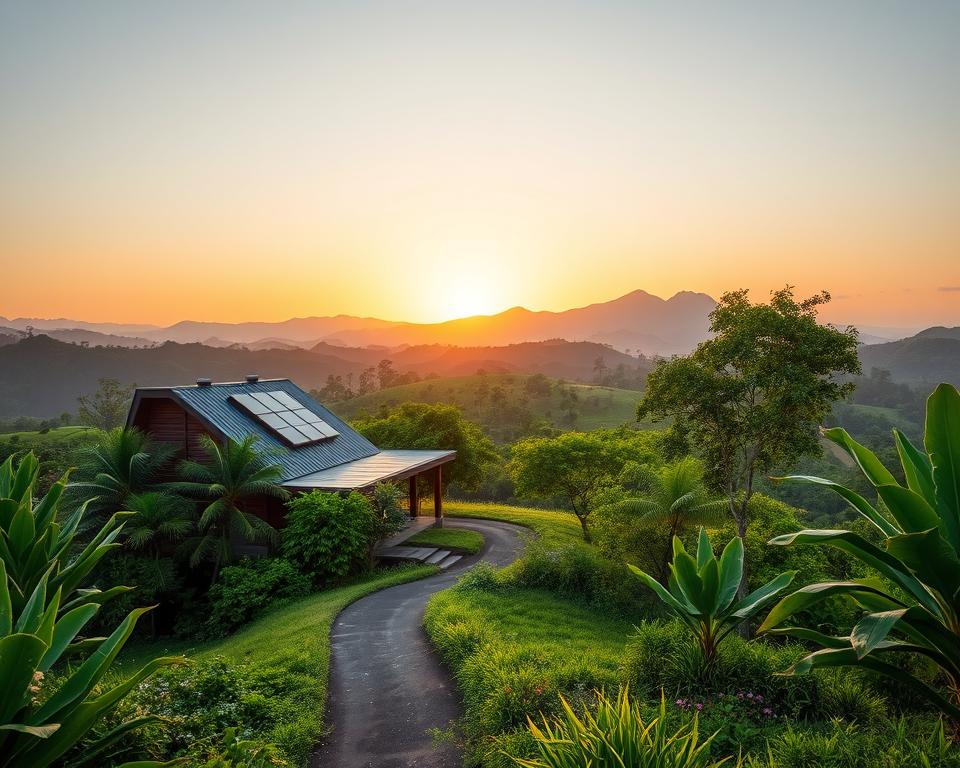
Plumbing and Water Systems Inspection
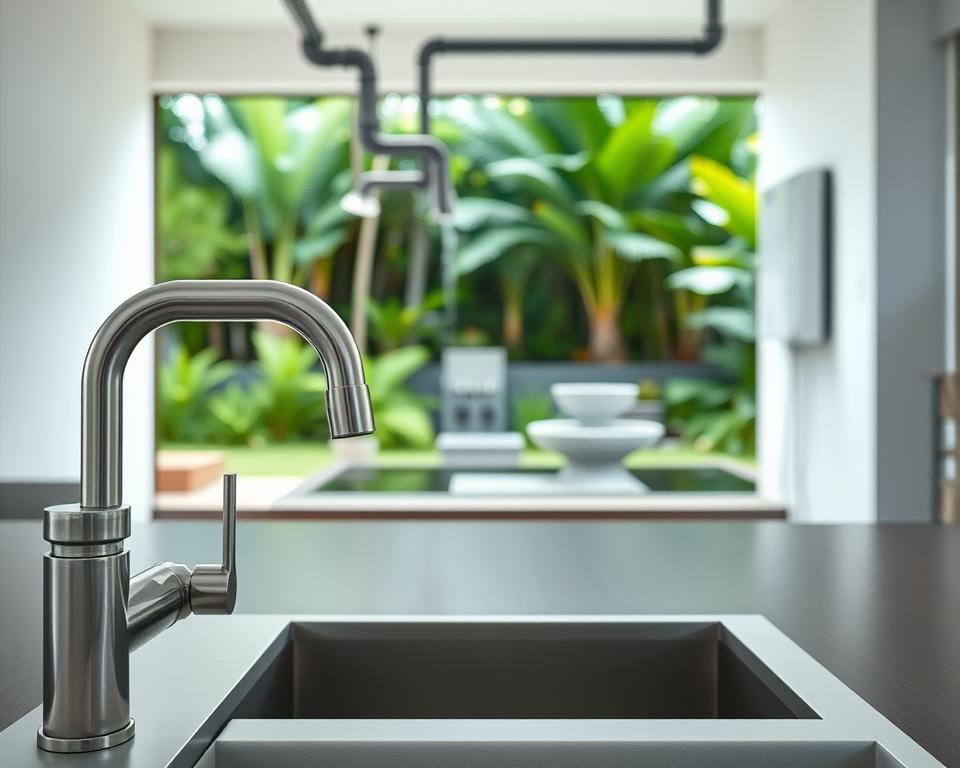
A comprehensive evaluation of the plumbing and water systems is essential for a smooth property buying experience in Costa Rica. The country’s unique environment and infrastructure require buyers to be particularly vigilant about the condition and functionality of these systems.
Water Supply and Quality Verification
Water supply systems in Costa Rica vary significantly, ranging from municipal connections to private wells and community systems. Each of these requires specific verification of reliability, quality, and legal rights. We guide you through assessing water pressure, testing water quality, and understanding the property’s water storage capacity for periods of limited supply.
Septic Systems and Drainage
Septic systems are the norm in Costa Rica, rather than centralized sewage treatment facilities. It’s crucial to verify the age, capacity, maintenance history, and compliance with environmental regulations of these systems. Additionally, drainage systems require careful inspection, including assessment of grading around the property, gutter systems, and management of stormwater runoff.
Hot Water Systems and Plumbing Quality
Hot water systems in Costa Rican homes often differ from North American expectations, with on-demand systems being common. Understanding the plumbing materials used is also crucial, as some materials deteriorate quickly in the tropical climate. We explain how to identify signs of water damage and plumbing issues that may indicate larger problems with the property’s water management systems.
Complete Home Buying Checklist in Costa Rica
To simplify your home purchase in Costa Rica, we have compiled a complete checklist. Buying a property in this beautiful country can be a complex process, but with the right guidance, you can navigate it with ease.
Interior Features and Amenities
When evaluating the interior of a property in Costa Rica, consider the quality of finishes, built-in amenities, and overall space functionality. Check for signs of moisture or mold issues, which are common in Costa Rica’s humid climate and can indicate larger structural problems. Inspect the living room, bedrooms, and kitchen to ensure they meet your standards.
- Assess the condition and quality of flooring, walls, and ceilings.
- Check the functionality of doors and windows, ensuring they are secure and well-maintained.
- Evaluate the kitchen and bathrooms, focusing on fixtures, appliances, and overall condition.
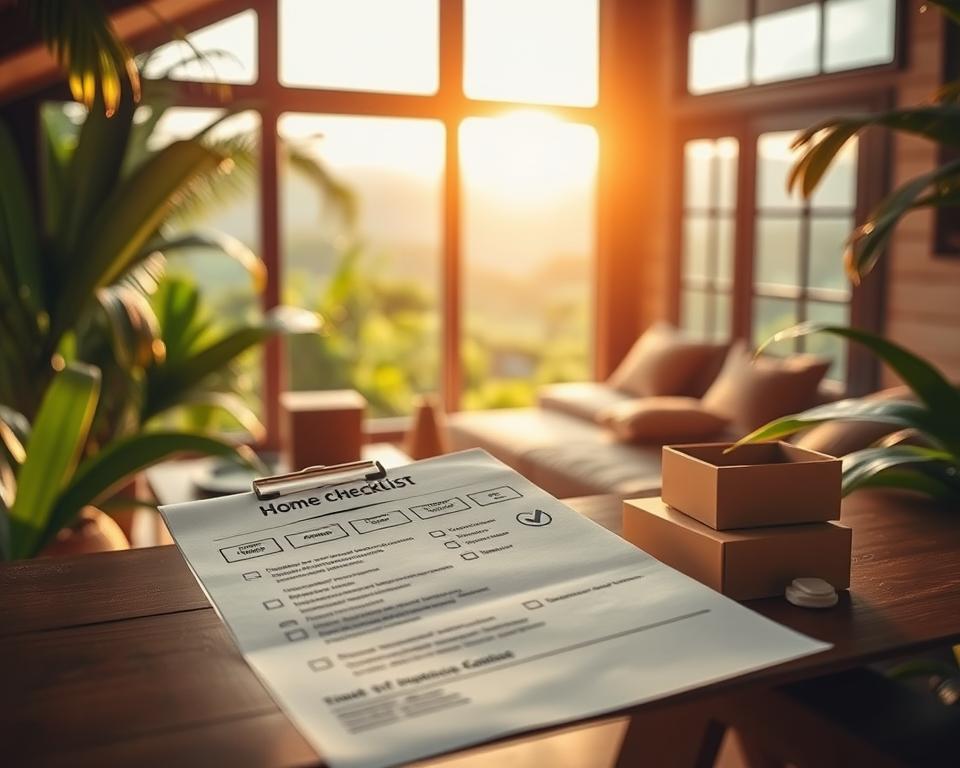
Exterior and Landscaping Assessment
The exterior assessment of a property in Costa Rica starts with the roof. Inspect for missing or damaged tiles, signs of leaks, and the overall condition of the roofing material. The gutters and downspouts require close attention to prevent water damage. Assess the landscaping around the property, including tree placement and grading, to ensure water flows away from the foundation.
- Inspect the roof for damage and ensure gutters are clear and properly attached.
- Assess the landscaping for both aesthetic and functional aspects, including drainage and erosion control.
- Check for proper grading to prevent water accumulation near the foundation.
Security Features Evaluation
Security features are especially important in Costa Rican properties. Evaluate the perimeter fencing, gates, window protections, alarm systems, and lighting. A secure property not only protects your investment but also provides peace of mind.
- Inspect the condition and quality of perimeter fencing and gates.
- Check for window protections and the presence of a reliable alarm system.
- Assess the exterior lighting to ensure it is adequate for security purposes.
Legal Documentation and Verification
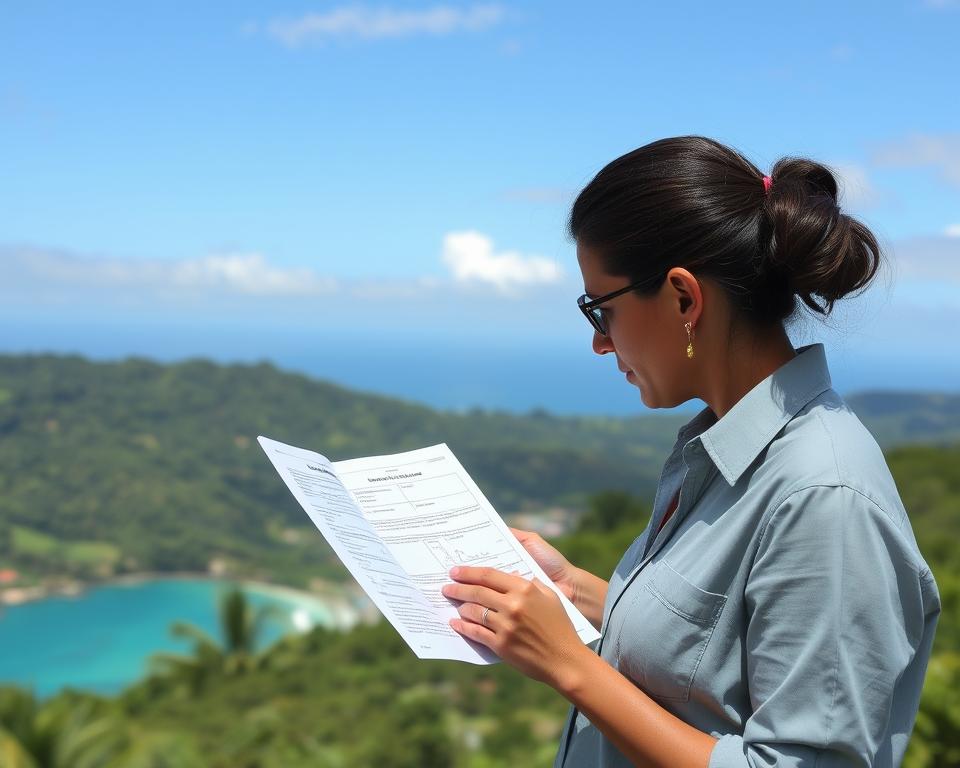
Verifying the legal status of a property is essential in Costa Rica’s complex real estate landscape. Ensuring that all legal documentation is in order is crucial for a smooth transaction and to avoid future legal issues.
Property Title and Ownership Verification
The first step in your legal review should confirm the property’s ownership. In Costa Rica, all documents relating to an interest and/or title to real property must be registered in the property registry. Request a certified copy of the property’s title and ask a bilingual real estate attorney to review it. This document will show the current owner, any liens or mortgages, and other important details about the property’s legal status.
Building Permits and Compliance
Verify that all structures on the property comply with local building codes and have the necessary permits. Ask for copies of building permits and certificates of occupancy. The absence of these documents could indicate unauthorized construction, which may lead to fines or forced demolition in the future.
Property Boundaries and Survey Requirements
Property boundaries in Costa Rica can be challenging to verify, making professional surveys crucial to prevent boundary disputes with neighboring properties. Understanding zoning regulations and land use restrictions is also important, as environmental protection laws and coastal zone regulations can significantly impact property rights.
Legal documentation verification is critical in Costa Rica’s real estate market. We guide you through verifying property ownership, ensuring there are no liens or disputes, and understanding building permits and compliance requirements. Working with a bilingual real estate attorney is essential to navigate these legal verification processes.
Post-Purchase Information Gathering
After closing on your Costa Rican property, gathering essential information is crucial for a smooth transition. As a new property owner, you’ll want to ensure you have all the necessary details to manage your property effectively and address any issues that may arise.
Essential Property Information to Collect
Gathering vital information about your property’s systems and operations will save you significant stress and potential damage in the future. It’s essential to collect details such as the locations of water shut-off valves, electrical panels, and septic system access points. Understanding the maintenance history and requirements of your new property will help you establish appropriate care routines for Costa Rica’s tropical environment.
- Locations of main water valves and shut-off points
- Electrical panel and breaker box details
- Septic system access points and maintenance records
- Other critical property systems and features

Important Contact Information for New Owners
Building a contact list of reliable local service providers is crucial for new property owners in Costa Rica. This includes plumbers, electricians, gardeners, and security services. Additionally, understanding local utility services, billing procedures, and payment options will help you manage your property efficiently, even from abroad.
- Reliable local service providers (plumbers, electricians, etc.)
- Local utility services contact information
- Emergency contacts and neighborhood services
Conclusion: Ensuring a Smooth Property Purchase in Costa Rica
Costa Rica’s unique real estate market demands a comprehensive approach to property inspection and purchase. A thorough inspection checklist is essential for protecting your investment in Costa Rica’s real estate market. By identifying potential issues and estimating maintenance costs, you can negotiate effectively and avoid costly surprises.
Working with experienced real estate professionals like Gap Real Estate can significantly simplify your property purchase process. With over 20 years of experience in Costa Rica’s real estate market, we offer deep local knowledge and end-to-end support to navigate complex property transactions. Our team guides you through every aspect of the home buying checklist, from construction quality assessment to legal verification.
By understanding the rewards and responsibilities of Costa Rican property ownership, you can make informed decisions and set realistic expectations for your tropical investment. Contact Gap Real Estate today at +(506)4001-6413 or [email protected] to learn how we can help simplify your Costa Rican property purchase.

